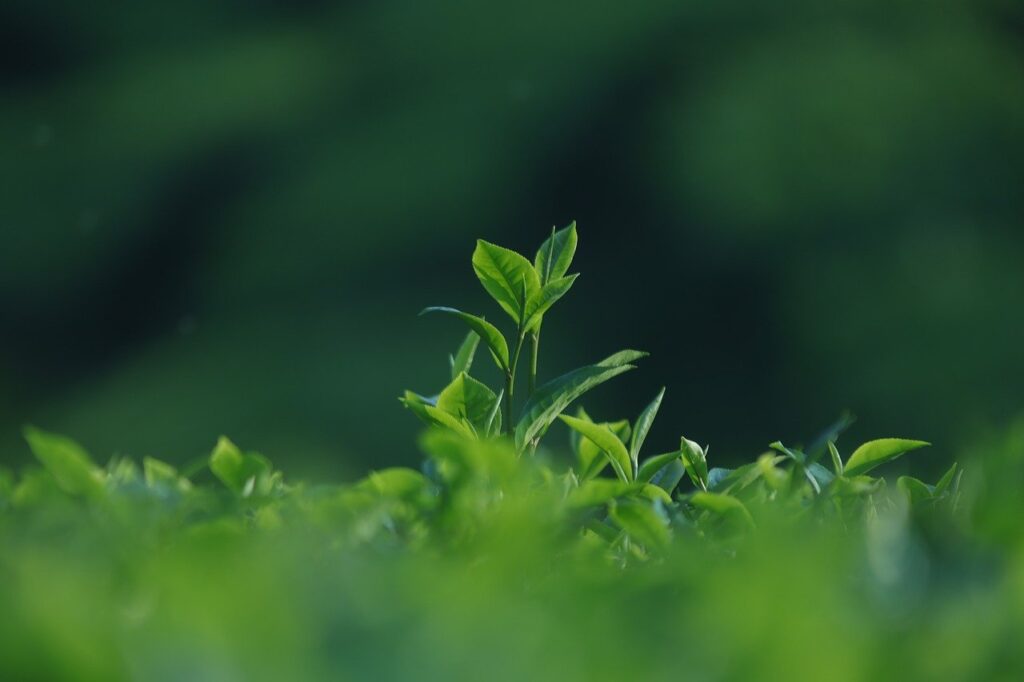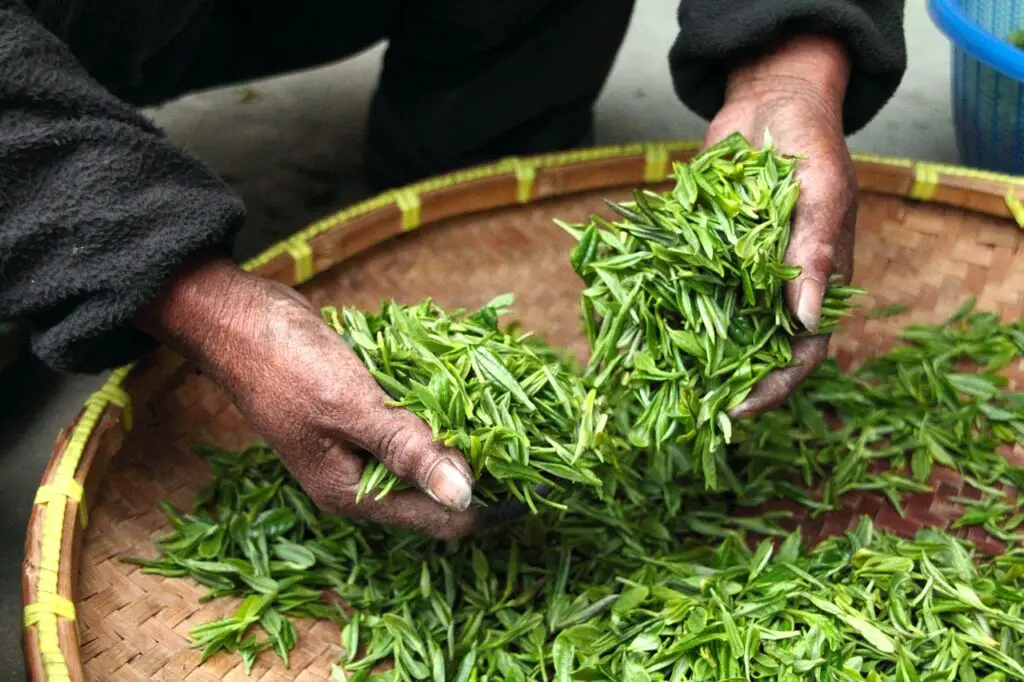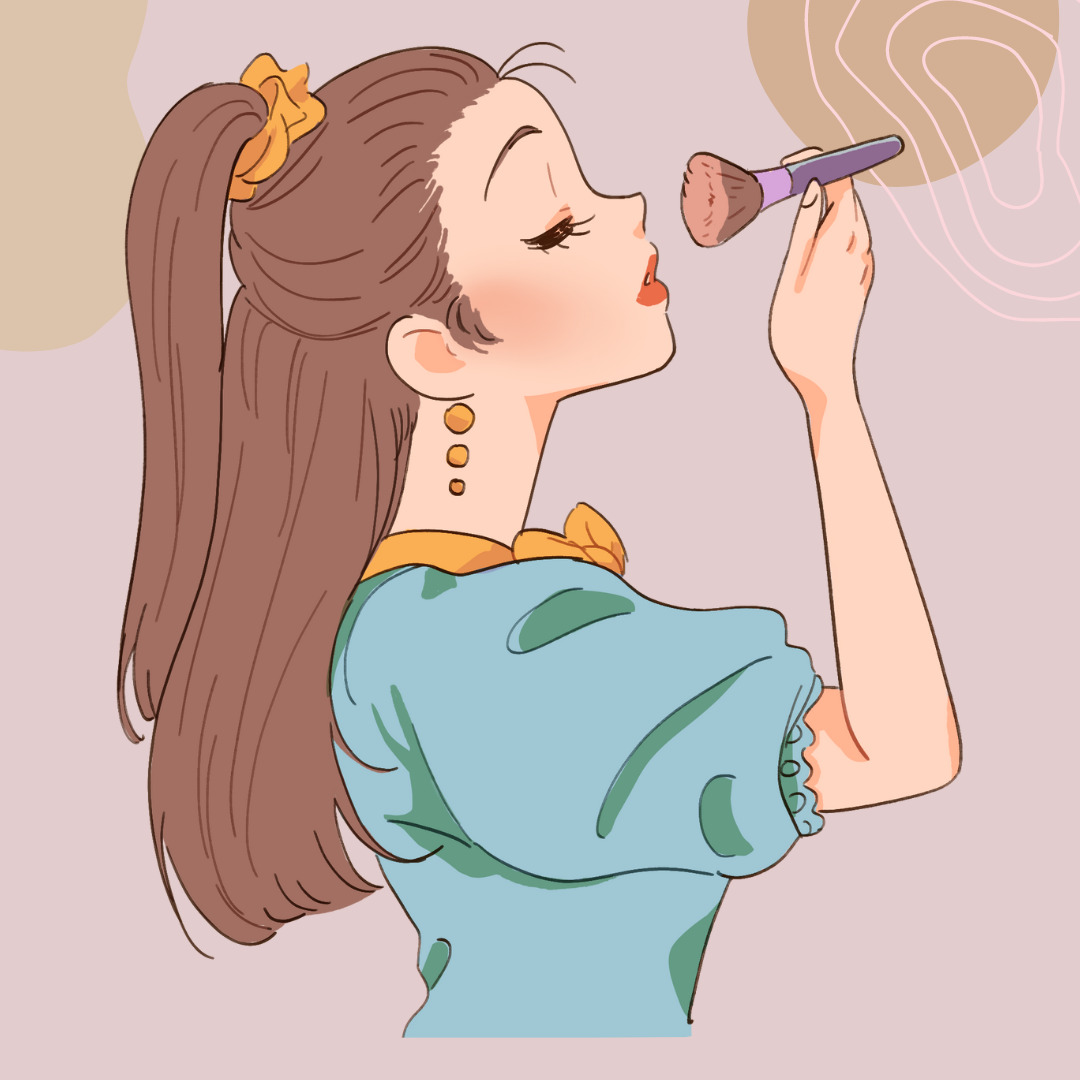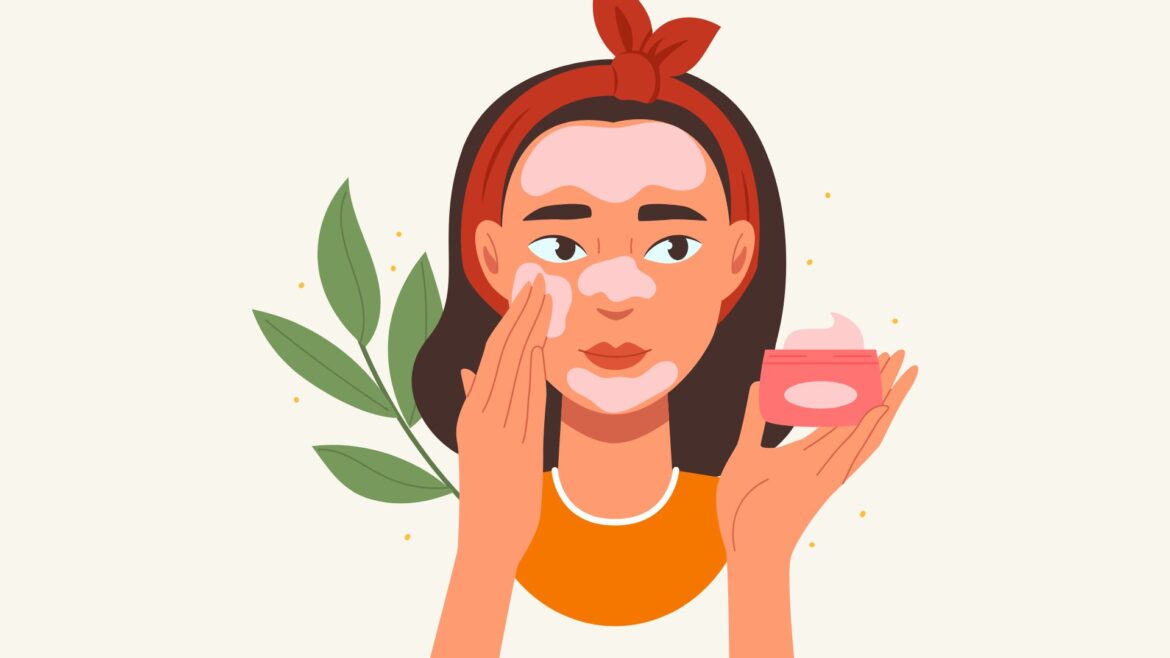Introduction
Green tea has become a go-to ingredient for health-conscious individuals, and its potential to enhance hair growth is gaining recognition. Thanks to its powerful antioxidant properties and natural compounds, green tea can play a significant role in promoting healthy hair and reducing hair loss. In this blog, we’ll dive into the science behind green tea’s benefits for hair, its mechanisms of action, and how you can incorporate it into your hair care routine for optimal results.

The Science Behind Green Tea and Hair Health
Key Active Compounds
Green tea is packed with beneficial compounds, but its superstar ingredient is Epigallocatechin Gallate (EGCG), a potent catechin known for its antioxidant properties. Alongside EGCG, other compounds like epicatechin, caffeine, L-theanine, and essential vitamins (B, C, E) contribute to green tea’s hair-enhancing abilities.
Mechanisms of Action: How Green Tea Promotes Hair Growth
1. DHT Inhibition
One of the main causes of hair thinning and loss is a hormone called dihydrotestosterone (DHT), which shrinks hair follicles. Green tea’s EGCG inhibits the enzyme that converts testosterone to DHT, slowing down hair loss and supporting healthy hair growth.
2. Antioxidant Protection
The antioxidants in green tea, particularly EGCG, protect hair follicles from oxidative damage caused by free radicals. This protection can reduce hair loss over time and keep your scalp in optimal condition.
3. Anti-Inflammatory Effects
Inflammation is another culprit behind hair loss. Green tea’s anti-inflammatory properties help soothe the scalp, reducing inflammation and promoting a healthier environment for hair growth.
4. Improved Blood Circulation
Green tea boosts blood circulation, ensuring that hair follicles receive the nutrients and oxygen needed for growth. Improved circulation can stimulate hair follicles, encouraging thicker and fuller hair.
Clinical Evidence: What Studies Say About Green Tea and Hair Growth

Research supports green tea’s potential for hair regrowth. For example, studies on mice have shown significant hair regrowth when consuming green tea extract. Additionally, a small-scale human study using topical EGCG extract saw noticeable hair growth within just a few days. These findings suggest that incorporating green tea into your routine could benefit those struggling with hair loss.
How to Use Green Tea in Your Hair Care Routine
1. Topical Application
- Green Tea Rinse: Brew 2-3 tea bags in a cup of water, allow it to cool, and use it as a post-shampoo rinse. Leave it on for about 10 minutes before rinsing with cool water.
- Green Tea Hair Mask: Combine cooled green tea with a carrier oil like coconut oil. Massage the mixture into your scalp and hair, let it sit for 30 minutes, then rinse thoroughly.
- Green Tea-Infused Products: Choose shampoos and conditioners that list green tea extract as an active ingredient to get daily benefits.
2. Oral Consumption
- Drink Green Tea: Aim for 2-3 cups of green tea per day. This may provide the necessary nutrients to benefit your hair from the inside out.
- Green Tea Supplements: Consider green tea extract supplements, but consult with a healthcare professional before starting any supplement regimen.
Potential Side Effects and Precautions
While green tea is generally safe, there are a few precautions:
- Caffeine Sensitivity: If you’re sensitive to caffeine, monitor your intake to avoid jitters or sleep disturbances.
- Iron Absorption: Green tea may inhibit iron absorption, so drink it between meals rather than with food if you’re prone to iron deficiency.
- Liver Concerns: High doses of green tea extract have been linked to liver issues in rare cases, so stick to moderate consumption.
- Medication Interactions: Check with your doctor if you’re on medications like blood thinners, as green tea could interact with them.
Combining Green Tea with Other Hair Growth Strategies

For the best results, integrate green tea with other hair growth strategies:
- Balanced Diet: Ensure you’re consuming enough protein, vitamins, and minerals to support healthy hair growth.
- Scalp Care: Maintain scalp hygiene with gentle shampoos and exfoliating treatments to remove buildup.
- Stress Management: Practice relaxation techniques like yoga or meditation to reduce hair loss triggered by stress.
- FDA-Approved Treatments: In more severe cases, consider minoxidil or finasteride (for men) under medical supervision.
The Future of Green Tea in Hair Loss Research
As more research is conducted, the use of green tea for hair growth will likely become more refined. Potential future developments could include topical green tea treatments and more comprehensive clinical trials to establish its effectiveness for various types of hair loss, including alopecia.
Conclusion
Green tea offers a promising natural solution to hair loss by leveraging its DHT-blocking, antioxidant, and anti-inflammatory properties. Whether applied topically or consumed as a drink, incorporating green tea into your routine could promote healthier hair and a revitalized scalp. However, remember that hair loss can stem from various causes, so consult with a medical professional for personalized advice. By combining green tea with other healthy habits, you can work towards fuller, stronger hair over time.
Table of Contents
Breaking all the myths about Relationships (and love life) + TIPS!
If you clicked on this blog post is because you also want to know about all the myths in relationships and what entails. And so did I when…
4 min read
Collagen Benefits: The Secrets to a Youthful Skin
Collagen has arisen as a popular expression that most people use. Famous people and specialists continue to promote the advantages of collagen in our skin and in our…
4 min read
81 Self-Discovery Questions to ask yourself
Do you want to embark in a journey for you to develop yourself and know more about yourself? This is the right post for you! There is literally…
4 min read
6 BEST SUNSCREENS FOR YOU TO USE!
Finding the best sunscreen for your face or your body can be challenging (especially with the fake advertisement we see nowadays; DON’T FALL FOR IT!) It doesn’t only…
4 min read
9 Best Foundations for Acne-Prone Skin
For those that have Acne-Prone Skin it is a struggle to find makeup that will not harm your skin condition. In my personal journey I struggled, so believe…
4 min read
5 SKIN CARE ingredients you need to know!
Your skin care ingredients are important if you want to have a good and effective skin routine. If you are reading this post is because you want to…
4 min read






